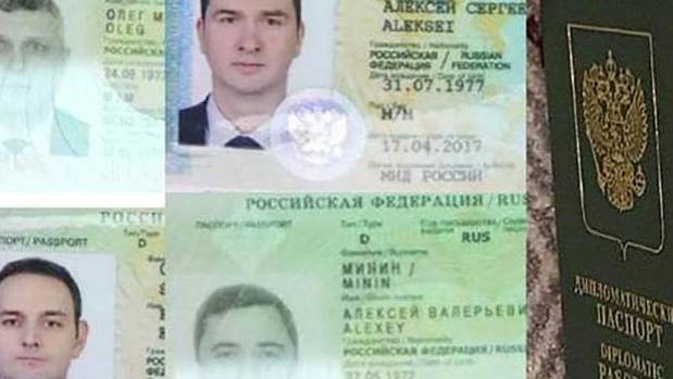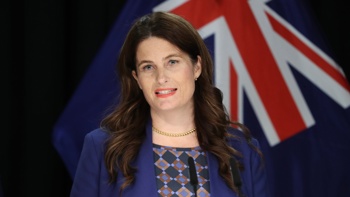
Assassination. Sabotage. Subversion. What seemed to be a series of unrelated incidents across Europe have been linked to a co-ordinated Russian espionage campaign. And behind the chaos is an elite group of killers, dubbed Unit 29155.
"It's been a surprise that the Russians, the GRU, this unit, have felt free to go ahead and carry out this extreme malign activity … That's been a shock," the New York Times quotes an unnamed European security official as saying.
Western intelligence agencies only recently became aware of this Russian covert operations unit, according to reports. This is despite Unit 29155 agents engaging in espionage activities for more than a decade, reports News.com.au.
But the pieces have begun to fall into place. And the evidence reveals a Kremlin campaign to convince its people that their troubled nation is back on the path to "greatness" — all while undermining the Western liberal democratic notion of "rules-based order".
"It exploits implausible deniability," Australian National University Russian foreign policy specialist Dr Matthew Sussex said. "Everybody knows the Kremlin is behind it. And everyone's scared of it. But it's very hard to do anything about it."
Opposition leaders. Lawyers. Reporters. Protesters. Defectors. These people have all been the targets of poisonings, public bashings, extortions and more.
"Moscow is deliberately using these extravagant means," Dr Sussex said. "So whether it's plutonium or novichok, it sends a clear message to other potential opponents — "we will have no compunction about hunting you down and killing you."
Special assassination squad
The Times quotes a retired GRU (Russian military intelligence) officer as saying Unit 29155 deployed its operatives for "bombings, murders — anything".
"They were serious guys who served there," he said. "They were officers who worked undercover and as international agents."
Unit 29155 is just one of many secret groupings of GRU agents waging war in the "Grey Zone" — the point between espionage and open conflict.
Several more came to the attention of Western media last year when a US Grand Jury indicted 12 Russian citizens. This followed Special Investigator Robert Mueller's probe into foreign interference in the 2016 US presidential election.
US authorities accuse the 12 of being members of Russia's GRU. But the indictment goes further. It details their operational units explicitly.
Radio Free Europe (RFE) and open-source intelligence group Bellingcat have sought to trace these alleged operatives and their controllers. In doing so, they've uncovered what little is publicly available about these specialist espionage squads.
Unit 26165: Based at the Defence Ministry complex in Moscow, this unit was a Soviet-era hub of cryptanalysis (code-breaking) and "informatics" (data analysis) for the GRU. Under President Vladimir Putin, the GRU has graduated to involvement in internet-based operations. Attention was first drawn to its activities in 2017 when 26165 was linked to an email hack of French President Emmanuel Macron.
Unit 40904: The extent of this GRU unit's operations remains unclear. In the past, however, it has been connected to signals intelligence processing and analysis.
Unit 74455: Three of the indicted are listed as being from this GRU unit. Its nature and purpose remains unknown. But RFE says it found mention of it in a 2012 Russian Defence Ministry "outstanding service achievement" bonus payment scheme. It was listed in the context of two other GRU units — 99450 and the now known assassin squad 29155.
Unit 99450: This unit has links to the Special Operations Forces Center in the Moscow district. RFE says it was this base that provided many of the "little green men" — soldiers without badges or national insignia — that invaded Crimea in 2014.
Unit 29155: In many ways, this represents the "missing link" in the GRU intelligence agency's "hybrid warfare" campaign. Where the other units engage in information warfare and "plausible deniability" operations, 29155 fulfils the role of intimidation and retribution.
Get smart?
That we now know of these GRU units represents something of a failure in their operations. At least traditionally.
Espionage is supposed to be a secret game. Some international security analysts have expressed surprise at the GRU's apparent carelessness. And lack of success.
The high-profile poisoning of defector Sergei Skripal and his daughter failed. The weapon was blatantly Russian in origin. And the agents involved were quickly traced back to Moscow by British intelligence.
A Bulgarian arms dealer also survived an earlier poisoning attempt that the Skripal operatives were allegedly also behind.
And a GRU-manufactured coup in Montenegro backfired: Just one year later, in 2017, the East European state joined Moscow's arch-nemesis — NATO.
But not all agree these represent bungled operations.
"That kind of intelligence operation has become part of the psychological warfare," former Estonian intelligence chief Eerik-Niiles Kross told The Times. "It's not that they have become that much more aggressive. They want to be felt. It's part of the game."
Dr Sussex agrees: "Personally, it's my view that it doesn't matter so much what the Russians do. What matters is that they feel there is little in the way of penalty or blowback for them in doing it."
A new way of war
To understand the existence of units like 29155, Dr Sussex said one must understand how Moscow thinks.
"In the West, we view wars differently to the way Russia does," he said. "When we talk about war, we talk about conflict that is very rules-bound. Something usually sanctioned by the United Nations. Something that's got tight reasons for engaging in. Something that has a clear exit strategy. The Russian view is very different."
That view was detailed in 2012 when General Valery Gerasimov, Russia's chief of the General Staff, published an article in a military policy journal. His doctrine embraced a new, whole-of-society concept that drew little distinction between war and peace.
War and peace is no longer black and white. Instead, it's a whole new "grey zone".
"Their doctrine is that war is total," Dr Sussex says. "Why fight with your hands tied behind your back? In other words, war should use subterfuge. It should use misinformation. It should be political. It should be economic. Basically, it must embrace all levels of society — and exploit the West's vulnerabilities."
One of those vulnerabilities, Moscow believes, is democracy itself. Which is where misinformation and intimidation comes into play.
"The idea is that threats and blackmail and extortion are just as much weapons of war as missiles," Dr Sussex said. "This unit is part of the Kremlin's overall hybrid warfare scheme but not hybrid warfare in itself."
Hybrid monster
The GRU appears to be taking the lead in creating a unified force to fight in the "grey zone", also known as hybrid warfare.
It's not Putin's favoured FSB (counterintelligence service), whose precursor was the same KGB that nurtured the young intelligence operative before he set out on the path to becoming Russia's president. But that is in itself a sign of Moscow's murky politics, Dr Sussex said.
"Politics in Russia — if you are Putin — is about keeping multiple clans happy," he said, "while at the same time punishing different clans when they displease you."
The President's previous clear preference for his former FSB colleagues produced a backlash from supporters of the military, Dr Sussex said. This powerplay resulted in Putin's need to laud the activities of the GRU loudly.
Which is why there are two competing forces of hackers targeting the West.
One group, dubbed "Cozy Bear", is operated by the SVR Foreign Intelligence Service. The second, called "Fancy Bear", is run by the GRU military intelligence group.
"In fact, I don't think they talk to each other," Dr Sussex said. But both are actively engaged in Putin's hybrid warfare campaign.
"It's an arena where he can have no compunction about acting. And that's an advantage for him," he said.
"His view has been that the Western order is done, that it's crumbling, a failed experiment … all that kind of thing. Witnessing what we are in the European Union and the United States, to some extent, he's right. But he's had plenty to do with generating that himself, of course."
Putin, instead, has openly stated that he believes whoever controls information — and the artificial intelligence that mines it — will control the world.
World war truth
Dr Sussex said the Mueller inquiry indictments against the alleged GRU agents and the revelation of the existence of Unit 29155 are bold counterstrokes against Moscow's hybrid warfare campaign.
"It says: 'Look, this is what we have found out that we're prepared to go public about. And you can guarantee we know a hell of a lot more'. And that's something intelligence agencies haven't done so much before because of concerns about revealing their sources."
But, there's a catch.
"If you're Putin, you say: 'Well, so what? We didn't really have anything to do with it, nudge nudge wink wink'. And that just increases the notion that Russia is behind everything."
In politics, perception is reality. And, for Putin, the perception of far-reaching manipulations and revenge play to two audiences — his restive public as well as his international opponents.
"Putin needs to be seen as the great saviour, someone who is restoring Russia to glory," he added.
Otherwise, Moscow has long since realised the old formulas of propaganda don't work.
So, it co-opts social media to do its work for it.
Are you a Russian agent?
"People who disseminate misinformation that supports Moscow's line are often just ordinary citizens," Dr Sussex said. "Citizens become curators of misinformation because they're the ones that do the spreading. The state can't do it by itself because it then becomes obvious."
Instead, Moscow targets interest groups, extremists and activists.
"If you want to put out misinformation to the public that there's a deep-state conspiracy, you need anti-vaxxers, you need lizard-people conspiracy theorists," he said. "But not just that, you need people who have large numbers of followers — and ultimately people inside politics who are prepared to retweet and boost these messages."
In essence, these information operations tap into problems that already exists within Western society.
"And the big win for the Russians is that the likes of Trump and others will pick up the conspiracy theories they generate and promote them," Dr Sussex said.
And it's a contagion that is already deeply entrenched in Australia.
"The free speech debate. The globalism debate. That doesn't necessarily have to come from Moscow at all, but it's certainly something that suits its interests."
Take your Radio, Podcasts and Music with you









